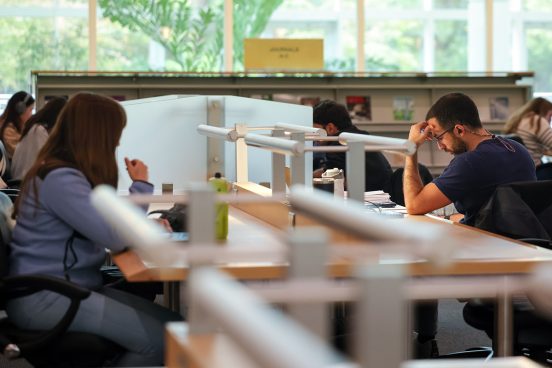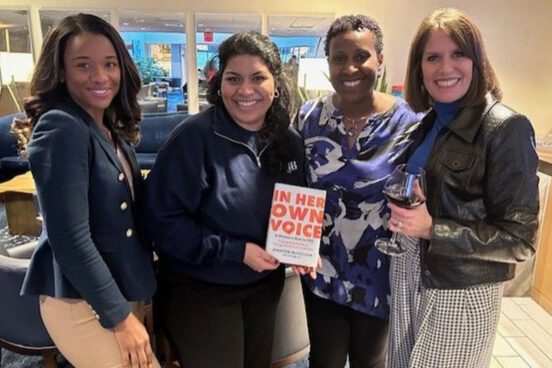Duke Daytime MBA Student Blog

MBAs + Military Training = Operation Blue Devil
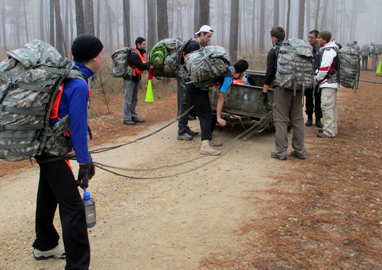
Integrity. Courage. Perseverance. Personal Responsibility. Professionalism. Adaptability. Team Player. Capability. What do all of these values have in common? They are the Army’s Special Operations Forces attributes, which define the military volunteers who become key fighters and influencers in the global fight against terrorism. Their experiences and leadership lessons could fill volumes of management textbooks.
Authentic engagement. Loyal community. Collective diversity. Supportive ambition. Uncompromising integrity. These are the paired principles which form the values held by the Daytime student body. Pretty standard, but what truly sets Fuqua apart is that it provides more than a transactional experience. Fuqua students are challenged to create a transformational experience in which they grow as individuals and become “Leaders of Consequence” who become positive agents of change within their communities and professions.
Fuqua’s mission sounds quite similar to how Special Operations Forces are trained to quickly adapt to complex environments while considering long-term effects in order to effectively accomplish their mission. If only there was a way to challenge these MBA candidates with the real-world leadership assessing scenarios that Special Operations Forces undergo …
Enter Operation Blue Devil. For the second year, the Duke Armed Forces Association (DAFA) organized Operation Blue Devil to provide Fuqua students with the ability to experience leadership outside of the classroom from some of the most well-versed practitioners in the craft: the elite men and women of Special Operations Forces. Much like Wharton’s Quantico Venture in which the University of Pennsylvania partners with the U.S. Marine Corps, DAFA is creating a partnership with Army base Fort Bragg that will assist in creating our intended “Leaders of Consequence.” The idea started with Duke student veterans who were stationed at Fort Bragg prior to their transition to Duke University. For many of us veterans, returning to our old stomping grounds in order to provide a unique experience to our peers is something we wholeheartedly believe in.
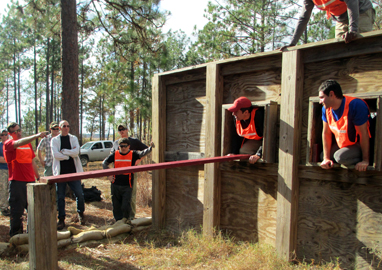
For a weekend in November, several student veterans acting as observers (myself included) took 19 Daytime MBA students to Fort Bragg. These 19 students’ military experience was limited to movies like “Black Hawk Down.” They volunteered to participate in Operation Blue Devil in order to push their boundaries and exit their comfort zones. They boarded a bus on a Friday evening and over the course of two days, slept in both a barracks room and in sleeping bags underneath ponchos in the woods of one of Fort Bragg’s premier training sites. They ate military Meals Ready-to-Eat (MREs), and experienced the life of a Special Operations Soldier in training. For many of them, it was the first time they attempted to lead diverse groups amidst foreign, dynamic, and ambiguous environments. They attempted to complete “missions” with incomplete information, limited time, and no clear “right” answers.
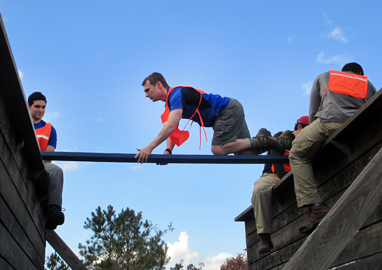
Starting at 6:00 a.m. Saturday and finishing by 12:00 p.m. Sunday, these brave Fuquans conducted an Army physical fitness test of 2 minutes of pushups, 2 minutes of sit-ups, and a 2-mile run. This was followed by team events which challenged them mentally as well as physically, including exercises in adapting random pieces of equipment (such as wheels, boxes, pipes, and rope) that could serve intended purposes such as transporting 200-pound sand bags, which represented fallen comrades. They also sat in on multiple survival classes, and the event culminated with an after action review that provided invaluable feedback on their overall performance, before boarding a bus and returning to Durham.
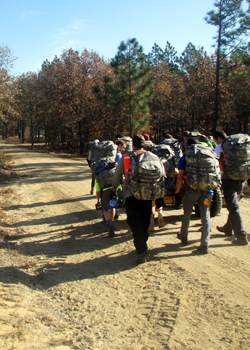
Physical challenges in a military setting may seem quite straightforward, but it was the mental challenges that were more applicable to future business leaders. It was fascinating to see what happens to a group of high-performers when you deprive them of simple comforts and tire them out with physical activities: reaction times lessen and complex problem solving skills decline. Solving simple math problems may seem beneath these MBA students with high GMAT scores. But after sleeping for only 4 hours, then hiking through the woods with a 35-pound rucksack (military backpack), it can become as complex as differential equations.
From this environment, true leaders arose. Ultimately, the participants emerged with a better grasp of their strengths and weaknesses. And while studying for midterms and preparing casework is important, they are more likely to remember Operation Blue Devil than the particulars of a class they took as the years go by. What matters now is whether they take time for reflection and apply what they’ve learned or allow it to become a simple memory. Were the links between the Special Operation Force’s attributes and Fuqua’s paired principles established in their minds? Could they take a lesson from the experience and apply it to their Fuqua teams or beyond? Did it become one of those transformational events we should all aspire to obtain during our stint at Fuqua? Deep down, after some careful and honest evaluation, only those 19 students will know.

